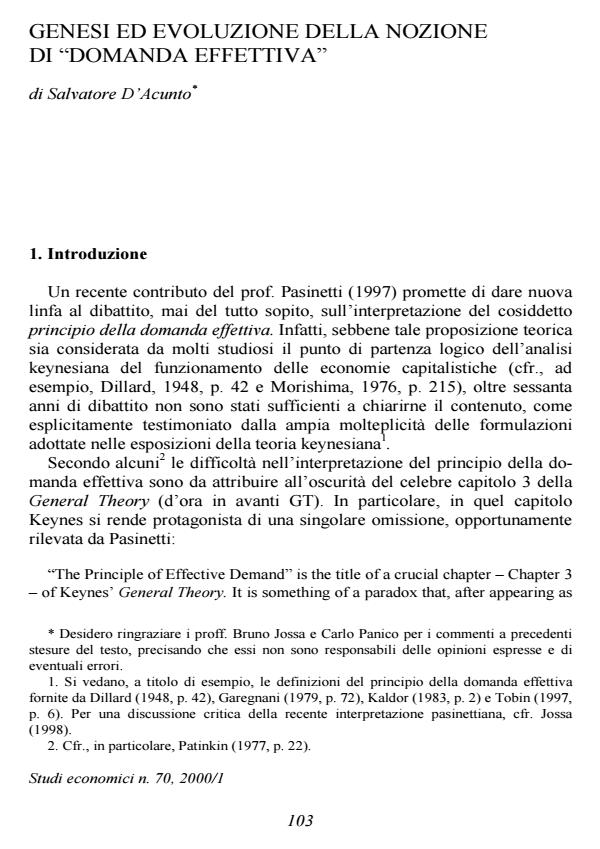Genesi ed evoluzione della nozione di "domanda effettiva"
Journal title STUDI ECONOMICI
Author/s Salvatore D'Acunto
Publishing Year 1 Issue 2000/70
Language Italian Pages 26 P. File size 120 KB
DOI
DOI is like a bar code for intellectual property: to have more infomation
click here
Below, you can see the article first page
If you want to buy this article in PDF format, you can do it, following the instructions to buy download credits

FrancoAngeli is member of Publishers International Linking Association, Inc (PILA), a not-for-profit association which run the CrossRef service enabling links to and from online scholarly content.
Keynes introduced the notion of effective demand in the 1933 draft of his General Theory to single out the difference between expected sale proceeds and variable production costs as the factor determining output fluctuations. He subsequently moved towards a different definition of 'effective demand' emphasizing the absolute size of expected sale proceeds rather than their excess over variable costs. In our work we argue that this lexical shift reflects Keynes’ movement towards a different analytical purpose rather than a substantial change of view on the forces determining the scale of output as a whole. The notion of effective demand adopted in 1933, while perfectly fitted to the purpose Keynes was presumably pursuing at that time, that is to compare the working of "co-operative" and "entrepreneur" economies, was unnecessarily complex for the analysis of the real (capitalistic) economy on which Keynes focussed his attention in the final draft of the General Theory. JEL Classification: B31, E12
Salvatore D'Acunto, Genesi ed evoluzione della nozione di "domanda effettiva" in "STUDI ECONOMICI " 70/2000, pp , DOI: